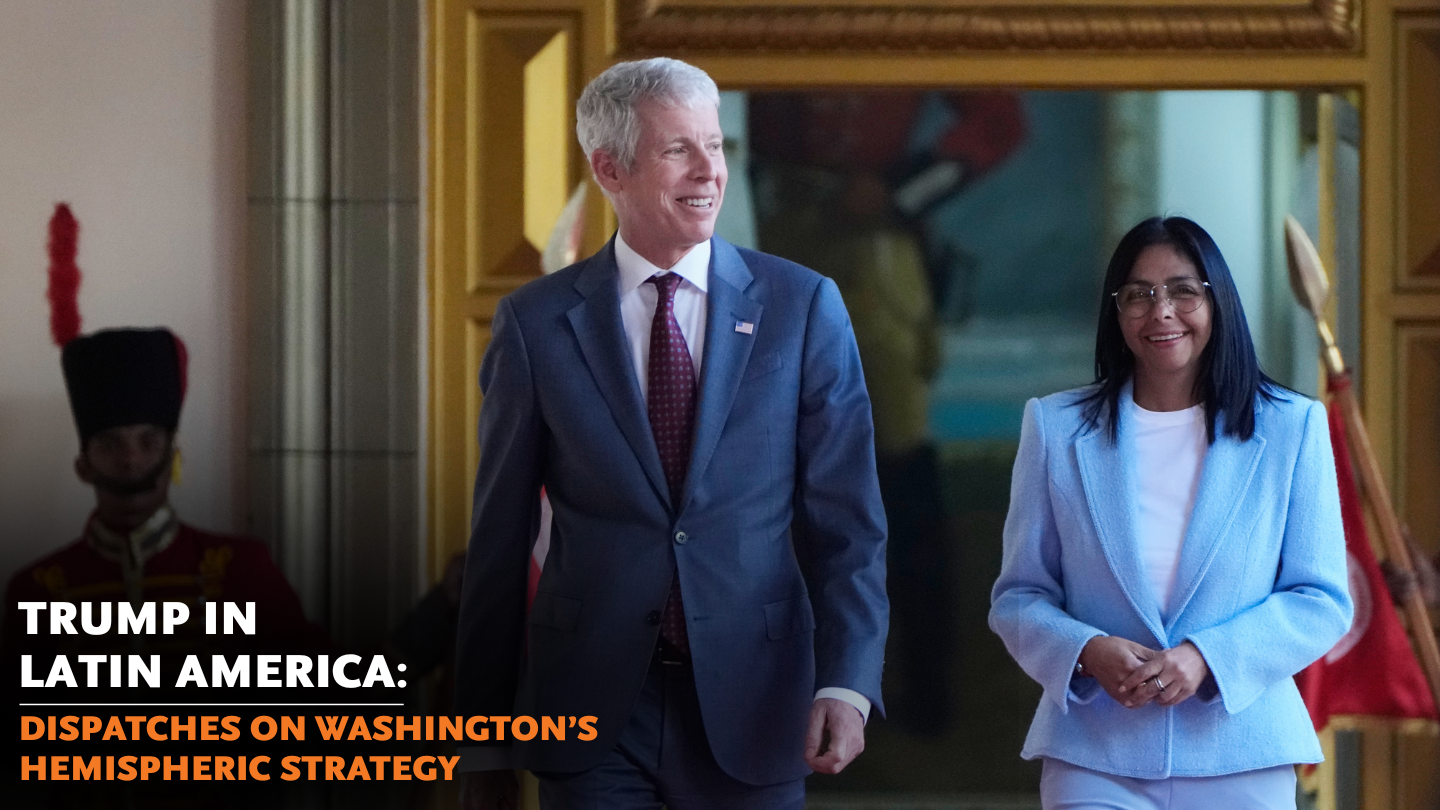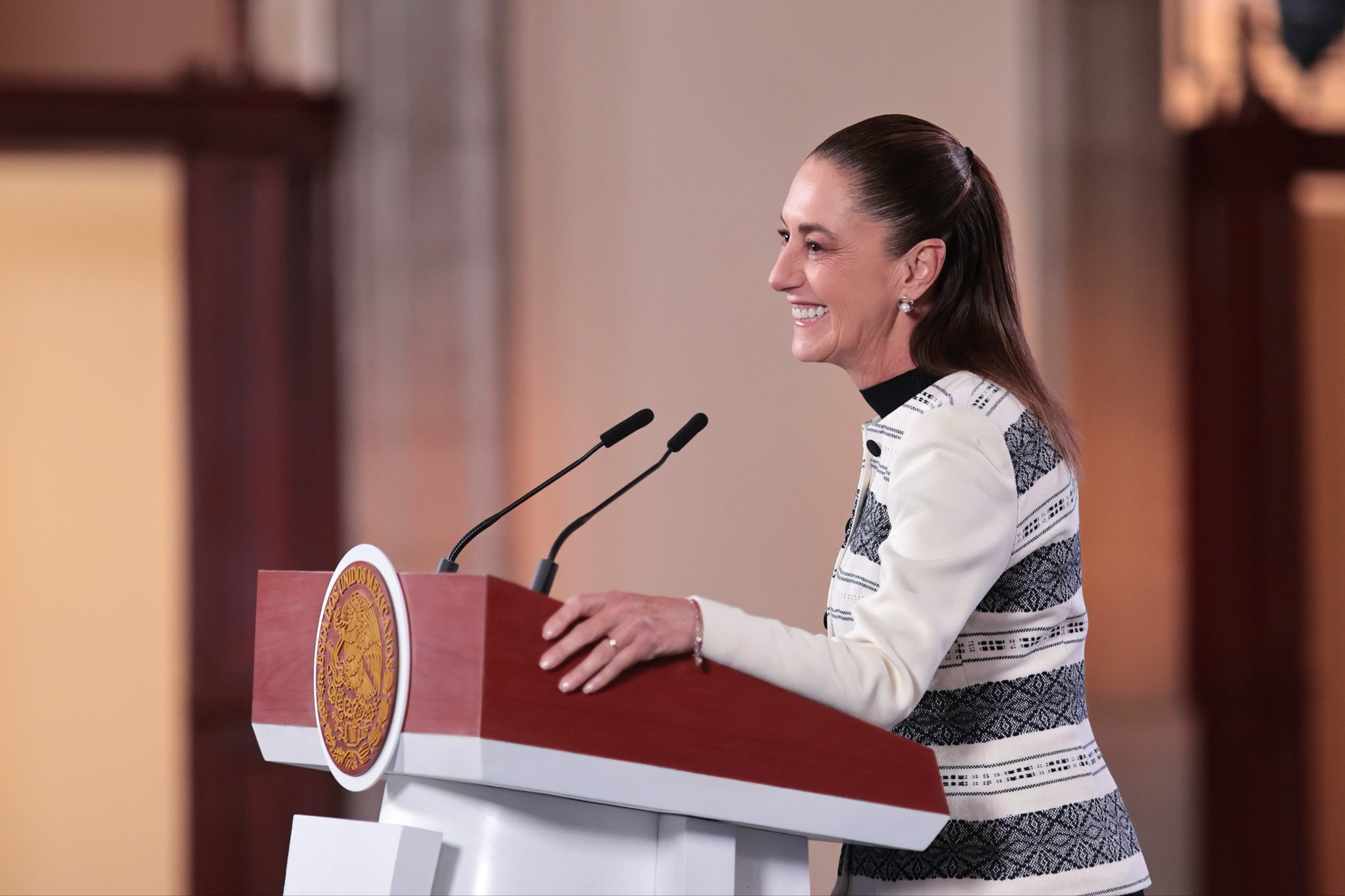The Cuba Wars: Fidel Castro, the United States, and the Next Revolution
The Cuba Wars: Fidel Castro, the United States, and the Next Revolution
At an AS/COA program, Cuba experts and the author of Cuba Wars, a new book by Dan Erikson, discussed the current state of U.S. policy toward the island nation and changes that could be expected in the near future. This discussion comes at a pivotal time, as leadership transitions have occurred in both countries.
Discussants:
- Daniel P. Erikson, Author, Cuba Wars; Senior Associate, U.S. Policy, Inter-American Dialogue
- Anthony DePalma, Writer-in-Residence, Seton Hall University; Author of Myths of the Enemy
- Christopher Walker, Director of Studies, Freedom House
- Christopher Sabatini, Senior Director of Policy, AS/COA; Editor-in-Chief, Americas Quarterly
Summary
Cuba experts and the author of a new book on U.S.-Cuban relations discussed the current state of U.S. policy toward the island and changes that could be expected in the near future. Dan Erikson’s new book, Cuba Wars: Fidel Castro, the United States, and the Next Revolution, covers the Castro regime after a half-century of power and what the end of Fidel Castro’s reign means for the future of Cuba. This discussion comes at a pivotal time, as leadership transitions have occurred in both countries. As we enter this new stage, the question remains: Will U.S.-Cuban policy look any different?
The Power of Inertia
After a period of contentious relations between the countries due to expropriation of property and a communist threat close to the U.S. border, the United States instated an economic embargo against the island in 1962. The embargo, along with other U.S. policy attempting to isolate the Castro regime from the rest of the world, evokes extreme passions from both the Left and the Right. The Inter-American Dialogue's Daniel Erikson pointed out that while the economic embargo has maintained political traction in the United States, the embargo is ridiculed and disliked in the rest of the world. He referenced the October 2008 vote in the UN General Assembly in which 185 of 192 countries voted in favor of lifting the 46-year-old embargo. At a time when the United States is trying to regain its global prestige, Erikson said that many in the world are calling for a reconsideration of our Cuba strategy.
New Policy
Current U.S. law (under Helms-Burton) toward Cuba requires deep changes in human rights and establishment of political processes in order to reinstate full relations. It was raised that preconditions concerning the political nature of the regime in effect preclude any type of dialogue if we keep such strict conditions in place. U.S. policy, in many ways is driven by an obsession with one man who seems larger than life. The question vexing U.S. policy is if the larger goal of promoting human rights and liberalization in Cuba is better served by establishing less rigid pre-conditions and terms for isolation. Testing that hypothesis under current policy is difficult.
Freedom House's Christopher Walker highlighted the diverse tools the United States uses to engage other non-democratic countries, including Iran, Russia, and China—though he also pointed out that in each case the conditions are different and not comparable in terms of opportunities and openings. He emphasized that the logic behind these relations is that they promote liberal ideals and will lead to eventual democratization. Seton Hall's Anthony DePalma pointed out that the United States is currently the largest exporter of agricultural goods to Cuba. He suggested that the U.S. president has the authority to augment the types of goods that can be traded with Cuba and to allow for credit to Cuban organizations, which could lead to liberalization of the economy and the labor market. While pointing out that economic isolation has not been effective in Cuba, he expressed hope that the new administration would make Latin America more of a priority than it was in recent administrations. Walker emphasized the need for encouragement of political freedoms for the Cuban people as we begin this new phase in our relationship.
All the panelists also recognized and addressed the regime’s abysmal human rights record, which includes over 200 political prisoners. Its record remains one of the world’s worst.
Conclusion
A newly elected U.S. government has generated rising expectations about future developments in U.S.-Latin American relations. As we approach this new era, an important question remains: Is engaging with a non-friendly government “giving in?” The panelists agreed that the United States needs to set a new tone for relations in our hemisphere, and that the key is to starting with unilateral decisions. Expecting quid pro quo with Cuba has not worked in the past, and unilateral steps will show our respect for Cuban sovereignty and willingness to negotiate. AS/COA's Christopher Sabatini suggested that now is the opportune time for President Barack Obama to take the first step, which will demonstrate his commitment to the region before the upcoming Summit of the Americas. One way to do this is to lift the restrictions imposed by the Bush Administration on travel and remittances by Cuban-Americans—a simple act promised in his campaign that can have a huge symbolic value. The United States cannot turn a blind eye to the abysmal human rights situation on the island, nor should the United Sates seek an immediate normalization of relations. But slow, calculated, incremental steps would signal the beginning of a new era in regional relations.








